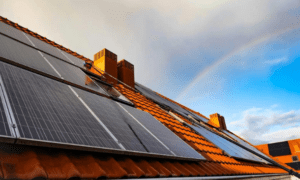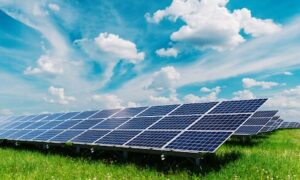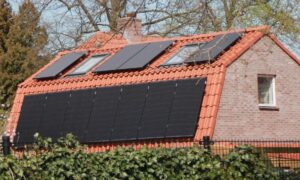Given the growing environmental awareness and the escalating expenses of energy, numerous residents in Maryland are contemplating the idea of adopting solar panels. These panels harness the sun’s energy to generate eco-friendly and sustainable electricity for residential properties. Nonetheless, it is crucial to comprehend the advantages and factors to consider before finalizing the installation of solar panels.
Residential Solar Panels in Maryland – What You Need to Know
Maryland has a favorable environment for solar energy due to its ample sunlight and supportive policies. Before installing solar panels, it’s crucial to assess your home’s solar potential. Factors such as the orientation and angle of your roof, shading from nearby trees or buildings, and the size of the available space should be considered. Consulting with a professional solar installer will help you determine if your home is suitable for solar panel installation and provide an estimate of the potential energy production.
Eight Key Points to Understand About Solar Panels
Increased Buyer Interest and Higher Property Value
Solar panels have become increasingly popular in the real estate market, with buyers showing a willingness to pay more for properties equipped with these clean energy solutions. The presence of solar panels can significantly enhance the attractiveness of a property and increase its overall value. Let’s explore the factors that contribute to this trend and shed light on the implications for buyers and sellers.
The Impact of Installation Costs on Demand
One of the crucial factors that affect the demand for solar panels is the cost of installation. While the long-term benefits of solar energy are well-known, the initial investment required can deter some potential buyers. As installation costs continue to decrease over time, the demand for solar panels is expected to rise, making them more accessible to a wider range of buyers.
Appraisers and Lenders: Assessing Solar Panel Value
Appraisers and lenders play a vital role in evaluating the value of properties equipped with solar panels. Appraisers consider various factors, including the cost savings generated by the panels, their expected lifespan, and the local market conditions. Lenders take these appraisals into account when determining the financing options available for prospective buyers.
Do Solar Panels Add Value?
A common question among homeowners is whether solar panels actually add value to their properties. Numerous studies have shown that solar panels can indeed increase a property’s value. Buyers recognize the long-term cost savings associated with solar energy, making homes with solar panels more desirable. Additionally, the environmental benefits and reduced carbon footprint associated with solar power contribute to the added value.
Lease Vs. Purchase: Evaluating Solar Panel Options
Homeowners have two primary options when it comes to solar panels: leasing or purchasing. Leasing allows homeowners to enjoy the benefits of solar energy without the upfront costs, while purchasing provides long-term cost savings. The choice between lease and purchase can impact the real estate market, as potential buyers consider the terms and conditions associated with each option.
Potential Buyer Concerns and Overcoming Obstacles
While solar panels have numerous benefits, some buyers may have reservations. Concerns about maintenance, system reliability, or potential complications during the buying process can make buyers hesitant. It is crucial for sellers to address these concerns and provide accurate information to alleviate any doubts and ensure a smooth transaction.
Sellers’ Financial Considerations
Sellers who have invested in solar panels should take into account the added value they bring to the property. Pricing a solar-equipped home correctly requires considering the initial installation costs, the remaining lifespan of the panels, and the potential savings for the buyer. Sellers may need to adjust their asking price accordingly to attract potential buyers.
Researching Solar Panels: A Must for Potential Buyers
If you are considering installing solar panels in maryland ,it is essential to conduct thorough research. Understand the benefits, costs, and potential savings associated with solar energy. Additionally, familiarize yourself with available financing options and incentives offered by local governments or utility companies. By being well-informed, you can make an educated decision that aligns with your financial goals and environmental values.
Fannie Mae Weighs In on Solar Panels
Fannie Mae, the mortgage financing giant, recognizes the value of solar panels and their positive impact on homeowners. They have introduced programs that allow homeowners with solar panels to qualify for higher loan amounts and receive better mortgage terms. Fannie Mae’s support for solar panels further emphasizes their worth as a long-term investment for homeowners in Maryland.
Consider the Aesthetic Impact of Solar Panels on Your Home
While the financial and environmental benefits of solar panels are undeniable, it’s essential to consider the aesthetics of your home. Solar panels come in various designs, and some homeowners may be concerned about how they will look on their roof. Fortunately, modern solar panels are sleek and can complement the overall design of your home. Additionally, many homeowners find the sight of solar panels to be a point of pride, showcasing their commitment to sustainable living.
Conclusion
Investing in solar panels for your Maryland home can be a wise decision both financially and environmentally. They offer significant savings on electricity bills, provide a strong return on investment, and contribute to a sustainable future.Maryland’s supportive policies and incentives make it an ideal state for solar panel installations. Additionally, Fannie Mae’s recognition of solar panels as a valuable asset further strengthens their worth. Don’t forget to consider the appearance of solar panels on your home, as modern designs can enhance the overall aesthetics. Embrace the power of solar energy and take control of your energy consumption.
FAQs
1. Are solar panels suitable for all types of homes in Maryland?
Solar panels can be installed on various types of homes, including single-family houses, townhouses, and even apartments, as long as there is available space for installation and sufficient sunlight exposure.
2. How much do solar panels cost in Maryland?
The cost of solar panels in Maryland can vary depending on factors such as the size of the system, the quality of the panels, and the installation complexity. The cost of a residential solar panel system typically falls within the range of $10,000 to $30,000, excluding incentives and rebates.
3. Can I install solar panels myself, or should I hire a professional?
While DIY solar panel installation is possible, it is highly recommended to hire a professional solar installer. They have the expertise to assess your home’s solar potential, obtain necessary permits, and ensure a safe and efficient installation.
4. How long do solar panels last?
Solar panels typically have a lifespan of 25-30 years. However, they can continue producing electricity beyond that period, albeit at a slightly reduced efficiency.
5. What happens if my solar panels generate more electricity than I consume?
If your solar panels generate more electricity than you consume, the excess energy can be fed back into the grid through a process called net metering. This allows you to receive credits or financial compensation from your utility company for the surplus energy you contribute.



































